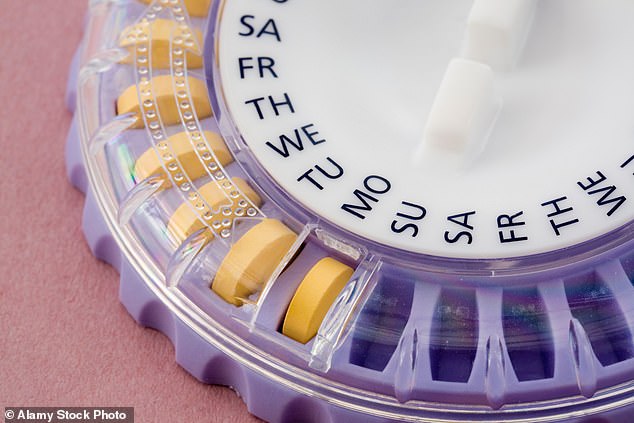I feel so lethargic I want to start HRT again – at 84: Ask the GP DR MARTIN SCURR
Ask: At a recent mammogram, a nurse suggested I consider taking HRT as it is beneficial for older women. I am 84 and have been on HRT for 20 years after a hysterectomy at the age of 42. But then I stopped taking it because of reports linking it to stroke and heart disease. I did notice a big drop in energy (which is still low) and I also have thinning hair.
Maureen Perks, Wollaston, Stourbridge, West Midlands.
Answer: I have long been an advocate of hormone replacement therapy (HRT) because I have followed the research and prescribed it to many patients over the years. While there is plenty of evidence for its benefits for symptoms such as hot flashes, it also reduces the risk of osteoporosis and helps women maintain muscle strength.
However, there are some potential side effects, although the risks are low.
In terms of age, the greatest benefits are seen when HRT is started as early as possible after the onset of menopause (which usually occurs between the ages of 45 and 55).
Most experts advise against starting HRT after the age of 60 or ten years after menopause, as a major study shows that these women experience a higher rate of ‘vascular events’ such as strokes and heart attacks, compared to those taking a placebo.

Most experts advise against starting HRT after the age of 60 or ten years after menopause, as a major study shows an increased rate of ‘vascular events’ (stock photo)
That’s not to say that some patients above that age limit will never benefit, but the decision should come down to the individual’s circumstances – their symptoms and risk factors – and a conversation between patient and doctor.
One factor to consider is that we know that HRT can improve the quality of life for women of all ages, and your description of low energy and thinning hair are symptoms that may improve if you restart HRT.
If you were to go on another course of treatment, I would imagine you would be given one that only had estrogen because you had a hysterectomy (in other words, you wouldn’t have progesterone either because this essentially regulates menstruation and the body prepares for menstruation). pregnancy). It would also be a lower dose than would be prescribed for a patient under 60 years of age because the estrogen receptors in the body’s tissues are more sensitive in older women, so less is needed (reducing the risk of possible side effects). .
However, HRT is not recommended if you have high blood pressure or another condition that your doctor thinks increases your risk factors, such as a history of transient ischemic attacks (TIAs or “mini-strokes”) or a pulmonary embolism (a clot blocking your heart). a blood vessel in the lungs).
I would talk to your doctor. You may try HRT for a year and then reassess to see if it provides the benefits you are hoping for. If this is successful, you can continue after this, provided your doctor agrees.
Ask: A year ago I had a scan as part of monitoring my advanced prostate cancer. To my surprise I received a letter saying ‘just a quick note to reassure you that the ultrasound scan of your abdomen has shown that the cyst in your pancreas is completely benign and requires no further action’. I didn’t know I had a cyst in my pancreas! How can they say it is benign, wouldn’t a biopsy be needed to confirm this, and is it possible this could change in the future?
Richard Francis, Fareham, Hampshire.
Answer: I am sorry for the concern this has caused, but I hope to reassure you that this is not necessary.
Pancreatic cysts are most often seen on scans because of other problems. They rarely cause symptoms, but are discovered more often than in the past because modern imaging technology now detects them.
They become more common with age, especially over 65 years of age.
You’re right: a single ultrasound cannot confirm with certainty that a cyst is not pre-cancerous and although more than 90 percent will consist solely of fluid, a more detailed examination is advisable.
For cysts up to 2 cm in size, this would mean having an MRI or CT scan every one to two years to monitor any changes.
Larger cysts should be examined using endoscopic ultrasound, which involves passing a thin fiber-optic camera through the esophagus and stomach into the duodenum.
In some cases, a sample of the cyst is taken at the same time. This could lead to another form of testing, magnetic resonance cholangiopancreatography or MRCP – a special type of MRI that produces detailed images of the pancreas.
Most people do not need to have these cysts removed, but I would recommend asking your GP for a referral, preferably to a specialist gastroenterologist for further examination and imaging, for clarity and reassurance.
Write to Dr. Scurr from Good Health, Daily Mail, 9 Derry Street, London, W8 5HY or email: drmartin@dailymail. co.uk. Dr. Scurr cannot enter into personal correspondence. Answers should be taken in a general context. If you have health problems, consult your own doctor.
